October 24, 2024

Mehmet Sinan Kuran
TR
Arijit Dutta Choudhury is a science museum/centre professional and has been serving presently as the Director General of the National Council of Science Museums, under the Ministry of Culture, Government of India.

This interview was conducted by Selva Ozelli
What was the idea/inspiration behind creating the National Council of Science Museums-- an autonomous organization under Indian Ministry of Culture-- the largest chain of science centers or museums under a single administrative umbrella in the world?
The idea of taking science to millions in the country through Science Museums and Science Centres was the driving force of the National Council of Science Museums (NCSM). This resulted in setting up of Science Centres in different parts of the country, including Science City in Kolkata where popularization of science and technology is done in a non-formal way.
Birla Industrial and Technological Museum (BITM), Kolkata is the first science museum owned by Government of India which was opened on May 2, 1959. BITM is widely regarded as the mother of science museum movement in India. The idea behind this pioneering initiative came from Dr. B C Roy, the then Chief Minister of West Bengal who after visiting the Deutsches Museum in Munich was inspired to create a similar institution in India for public engagement with science & technology. His vision and efforts in this regard found instant support and patronage from the likes of Pandit Jawharlal Nehru, the then Prime Minister of India, and industrialist Shri G D Birla. The establishment of BITM in 1959 and its growing popularity with the public in general and the student community in particular gradually snowballed into what is now a nationwide network of science museums and science centres under the National Council of Science Museums (NCSM).
National Council of Science Museums (NCSM), an autonomous society under the Ministry of Culture, Government of India was formed on April 4, 1978. Today, it administers 25 Science Centres/Museums spread all over India. NCSM forms the largest network of science centres and museums in the world under a single administrative umbrella. In addition, we make museums for various organizations as well as local governments, on turn-key basis.


Tell us about NCSM's initiatives concerning education on Climate Change, Biodiversity and Plastic Pollution?
NCSM strives to communicate Science and educate masses by its Mobile Science Exhibitions, Lectures and Demonstrations, Trainings and Workshops, Publications etc. One of our major objectives is to popularize science and technology in cities, urban and rural areas for the benefit of students as well as for the common man. In addition, we try to supplement science education given in schools and colleges through various out-of-school activities. Let us discuss them briefly-
I) Mobile Science Exhibitions – 'If people can not visit the museum, let the museum visit the people at their doorstep'. This core idea led to the birth of the Mobile Science museum in 1965 by NCSM. Mobile Science Exhibitions (MSE) are basically science exhibitions on buses based on various themes of science and technology that attempt to communicate science in rural areas. Presently NCSM has a large fleet of 48 MSEs. Of them, 25 MSE buses have been specially designed for the Aspirational Districts of India. On an average, these museobuses cover 2 million rural students and general public every year.
Some of the important topics covered in these exhibitions are-
ll) Popular Science Lecture (PSL)- PSL is a very powerful medium of science communication, where the experts talk about scientific developments in a lucid manner and there is an open discussion. It is often seen that there exists a gap of knowledge between scientists and the common man. Our interaction with the student community has revealed that many times they are unaware of the latest development in science and technology. Even though most of the students have heard about climate change, many have no clear idea as to what is causing climate change and how we can combat it at a micro level.
We have been organizing such lectures in all our centres involving scientists/ social activists/ doctors etc. Some of the notable ones are-
Recently, a very interesting lecture was delivered by Shri Narayana Peesapati, the innovator of edible cutlery. He explained that edible cutlery is made of food materials (sorghum, rice and wheat flours) and they come with nutritive contents and can be a good alternative to plastic use.

lll) Training and workshops:
YOU HEAR YOU FORGET, YOU SEE YOU REMEMBER, YOU DO YOU UNDERSTAND
We are the strong believer of the above proverb which has motivated us to carry out regular workshops in all our centres, from our inception. With the advent of covid, we started doing workshops online so that children could be engaged productively.
Here we would like to mention some of the highly successful workshops related to climate change.
i) Anthropogenic Impacts on Coastal Ecosystems-Nature Study Camps were organized in collaboration with the local Biodiversity Board.

ii) Nature Exposure Camp for Specially-abled Children- Specially-abled children participated in this workshop where they touched the different stages of butterflies and understood how animals in nature has evolved and adapted.

iii) Eat Plastic Pollution- Hands-on workshop for school students were organized where they were taught to make paper bags.

iv) Tree Plantation by participating students in the workshops

v) National Science Drama Festival (NSDF): NSDF programme was started by NCSM in the year 2001 on topics of social relevance which must convey 'scientific message. Accordingly, all the units of NCSM conduct science drama on the broad theme – 'Science and Society'. In this festivals school students take active participation and the winners are awarded at District, Regional and National Level.

vi) National Science Seminar: It is one of the most impactful and popular event organized by us since 1982. The seminar involves the nation's school- going youth in critically examining current S & T issues of importance for the society and sharing their own views on them. Every year a new theme is selected by a distinguished panel of scientists. The competition is held in a 4-tier format: Block level, District level, State Level and National level. It is estimated that each year more than 30000 school students from various States of India attend this event directly whereas the audience outreach is more than 200000.
In addition, we host Street theatres, Cleanliness drives, Science rallies, Open house quiz and various competitions in all our centres, on a regular basis.
This year The International Committee for Museums and Collections of Science and Technology (CIMUSET) which is a scientific committee of the International Council of Museums (ICOM) during its 48th #CIMUSET Annual Conference: “Museums & Environmental Concerns, New Insights” -7-11 November 2021, will address our planet's environmental concerns and how Science and Technology museums can approach and present this important issue via education and exhibitions. When did the NCSM get involved in climate change and plastic pollution related issues and what programs has it instituted?
NCSM has always believed in communicating science to the masses using multifarious platforms. In addition to the activities mentioned above, we specialize in developing exhibits that are primarily hands-on i.e.; visitors can operate and learn for themselves. We have realized the need to communicate the impending emergency of climate change long back and have started developing interesting exhibitions.
Using the latest technology, NCSM had developed a unique exhibition called 'Dinosaurs alive', back in 1995. This exhibition aimed to give the otherwise boring message of Environment and Ecology, from a new perspective, to the general visitors. The takeaway message was- Even the huge creatures like Dinosaurs could not escape the wrath of Nature. We, humans, are too fragile and hence we must care for our Mother Earth.
As can be seen below, that exhibition became a huge success among the general visitors.

This exhibition was followed by the creation of a host of exhibitions of different types ie; Temporary, Travelling and Permanent, on the central topic of nature conservation. Notable among them are mentioned here-
Exhibition on ‘Giants from the Backyard’: Animated and robotic models of 0 arthropods told the story of their evolution, usefulness and little known features. Nehru Science Centre, Mumbai organized it in 1998.
Post Oil City - The History of the City's Future: How will the transition from fossil fuels to renewable energy change the urban landscape? How will this transition affect key sustainability and mobility issues in the modern c i ty? Perhaps most importantly, how will we imagine our cities of tomorrow? This exhibition was organized by BITM in collaboration with Max Mueller Bhavan, Infinite Oppurtunities (Germany) and Institutes of Auslands- beziehungene. V., Germany on September 2012.
The Saga of Life: Inaugurated at BITM on World Biodiversity Day, from the collection of Shri Gopi De Sarker, this exhibition with matchboxes portrayed the diversity of wildlife on earth. Birla Industrialand Technological Museum (BITM) conducted it in 2015.
Climate Change: This exhibition having 58 interactive and informative exhibits is an attempt to generate awareness among the people about the causes, concerns & impact of the Earth's changing climate. Nehru Science Centre, Mumbai. It was inaugurated on 5th June, 2012.
Exhibition on Tigers in Their Natural Habitat: The Exhibition was designed & developed by Shri. Kamal M Morarka, eminent wildlife photographer. Exhibition contained 107 photographs captured the rare and the eye-catching moments of Wildlife & Nature. Nehru Science Centre, Mumbai
Mangrove Exhibition: The exhibition displayed various posters, specimens of mangrove flora and fauna etc. Special film shows, lectures were also organized for students & general public. Goa Science Centre, Panaji. This was inaugurated on 15 th December, 2015.
Indo- Norwegian exhibition 'Pole to Pole': Panels, dioramas related t o expeditions to Arctic & Antarctic. The exhibition was about importance of ice-core drilling techniques to learn about the history of climate change, the impact of harmful chemical pollutants on polar animals etc. This exhibition was inaugurated at National Science Centre, New Delhi in 2011.
Insect Live!: An exhibition on life cycle of insects, their role in the environment and diseases was on display. This exhibition was inaugurated at National Science Centre, New Delhi in 2017.
Travelling exhibition on 'Biodiversity': The Travelling exhibition on 'Biodiversity' which was opened to public at Visvesvaraya Industrial & Technological Museum, Bangalore in 2011. Visvesvaraya Industrial & Technological Museum, Bangalore
Water-A Precious Resource: This exhibition demonstrates that even low-tech water conservation methods and some conscious readjustments in our daily water usage patterns could be a viable alternative for water conservation. National Science Centre, Delhi and Units of Birla Industrial and Technological Museum(BITM)
Travelling exhibition on 'Planet under pressure': This travelling exhibition highlights the story of global changes due to direct or indirect human activities on our planet. It travelled to the following sites- NSC,Mumbai, RSC Calicut, RSC, Pilikula, RSC Tirupati, VITM, Bangalore, RSC Nagpur from 2014-2016.

NCSM UNVEILS FASCINATING FACES OF NATURE

In the last few decades, the degradation of our environment with increased global warming, melting of the arctic, pollution, increased carbon footprint, ozone layer depletion, natural resource depletion, loss of endangered species, urban sprawl have gone up at an alarming rate. The worldwide covid-19 pandemic has also added to plastic pollution stemming from single use plastic equipment that are dumped into our world's wetlands, oceans and landfills. Does the NCSM have any pandemic related plastic pollution related initiatives?
No.
NCSM has gracefully participated in Tiredearth.com's #MASKUARY CAMPAIGN. What is a Campaign like #MASKUARY's role in increasing public awareness in dealing with plastic pollution caused by PPE?
What gives strength is the cause of weakness - the resurgence of single-use plastics in the aftermath of the current pandemic is a typical example of this. Strong, durable and safe - plastics threaten to undo the benefits achieved after decades of anti-plastic campaigns - estimates put the amount of plastic waste generated worldwide since the outbreak at 1.6 million tonnes/day.
Campaigns like #MASKUARY (https://tiredearth.com/news/maskuary-campaign) helps to deliver the message that plastic was never the problem - it's how we deal with it afterwards that is where the peril lies. It teaches us that just like the pandemic, we need to keep learning about plastics too
What partnerships does the NCSM have? Does it collaborate with the UN, other museums around the world?
We believe and acknowledge the power of collaboration. As such we always look for partners, at Regional, National as well as International level. We are an active member of Association of Science and Technology Centers (ASTC) and ECSITE, the European network of science centres and museums and participate in the annual conferences.
The history of collaboration goes back to 1980, when NCSM signed MoU with USSR for Exhibition Exchange. In 1985, The Festival of India was launched in Chicago, USA. The same year, an Indo- US workshop was launched for museum professionals. NCSM launched Exhibition 'Science & Technology of India' in USSR in 1987. In the year 1990, NCSM sent an Exhibition 'India: A Glimpse of Science' in France which received wide acclaim. We have been undertaking a lot of cultural exchange programs of which a major one was with HEUREKA, the museum of Finland. Later a tripartite agreement among science centres of three countries ie; India, Finland and Thailand was signed for conducting a series of workshops. These exhibit development workshops started in the year 2006 when officials of National Council of Science Museums (NCSM), were invited to Heureka, the Finnish Science Centre, Finland for discussion on development of interactive exhibits. Since then, the workshop is organised regularly to ponder over development of interactive and experiential exhibits for science centres.
In the year 1999, NCSM had conducted 2nd Science Centre World Congress, a mega global event at Science City, Kolkata. This congress was attended by 227 delegates from 42 countries.
Recently in 2019, our senior curators participated in another exhibit design and development workshop held at Exploratorium, San Francisco.
Major collaborative exhibitions: Our unit at Delhi collaborated with Nobel Museum, Sweden to launch the Exhibition titled 'Alfred Nobel: Networks of Innovation' in 2010-11. For organizing another exhibition titled “Cartoons for Climate” at Regional Science Centre, Guwahati, we collaborated with the British Council. Reputed organizations like WWF, IUCN, Goethe Institute and Max Mueller Bhavan, Embassies of different countries, National Geographic etc collaborates with us on a regular basis.
As a part of the Festival of India celebrations in Indonesia & Malaysia, two travelling exhibitions 'Life on the Silver Screen: The Fascinating Story of Indian Cinema' and 'The Rise of Digital India' was developed by National Council of Science Museums (NCSM) This was inaugurated in Jakarta, Indonesia on 28th February 2015. From Indonesia, the exhibitions travelled to various cities of Malaysia such as Kuala Lumpur, Penang and Malacca from 18th April – 30th June 2015. Recently we collaborated with Science Museum Group London, Welcome Trust, and British Council London to host a mega travelling exhibition called 'Superbugs: The end of antibiotics?'.
Collaboration for Science Communication: The MS course in Science Communication conducted by NCSM is a specially designed programme for Human Resource Development needs of science museums and associated organization. In this two year- course, various concepts, professional skills and techniques of science communication are being covered including history of science & technology, exhibits & presentation, science communication & IT, museum management & operations, museum planning & organization, science learning in non- formal settings and science & society. This unique course was organized by collaborating with Smithsonian Institution, University of Maryland and leading Institutions of India.
How can people reach your NCSM's exhibitions, educational programs? Do you have digital reach?
All the units of NCSM have a vast database of schools and colleges. We regularly send letters to them to keep them abreast with our initiatives. Invites are sent to the heads of the Institutions whenever we carry out a new program or an exhibition.
In addition, all the centres have their own social media platforms like Facebook, Twitter, Youtube etc as well as dedicated websites. These are being regularly updated. We have a very good relation with the media who extend their cooperation in covering all the major events, both in newspapers as well as in electronic media.
Our digital reach increased exponentially during the pandemic when the digital platform was utilized extensively by all our units to communicate with our stakeholders.
Anything else you might want to add.
We have always tried to play a proactive role in science communication. This helped our stakeholders to get the correct information which increases our trustworthiness.
Besides the host of activities already mentioned earlier, we would like to mention that we believe in edutainment.
We have special facility called 3D theatres in all our units where films on widely different topics are shown. Some of the films on important subjects like SOS Planet, Dinosaurs alive, and Wild Ocean became very popular with our visitors.
Our largest unit, Science city, Kolkata has a unique facility called Space Theatre which can accommodate 360 visitors. Here we run specially designed large format films on a variety of topics. The first film called 'Serengeti' became a prime attraction of the centre and was watched by more than 600000 visitors. Till date, we have screened 29 large format films in this dome theatre.
Special drive during Covid:
e would like to refer to the exhibition that we created well before Covid hit our country. This was a travelling exhibition that was shown to the visitors visiting our centres. Even though the subject was new for everyone, this exhibition along with the hands-on workshop was well appreciated by our visitors. In addition, during the pandemic, all the units of NCSM have become very active on their respective online platform and we invited experts from different fields to interact with our audience. These measures increased our online visitor manifold and we plan to continue such activities in future.

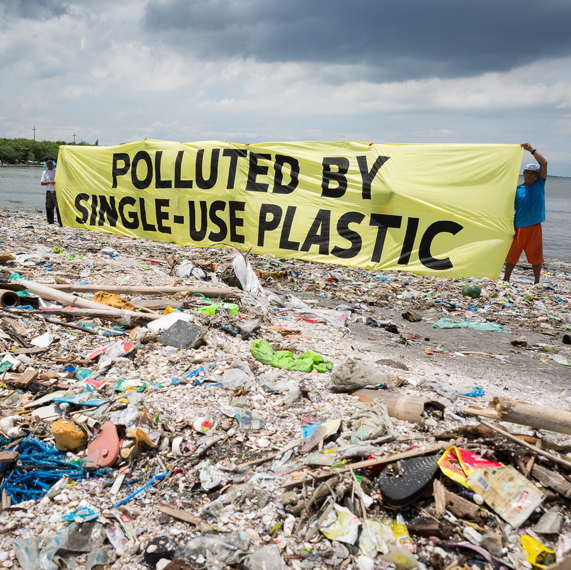
Why we need a UN Treaty on plastic pollution The Ellen MacArthur Foundation is a UK charity working on business, learning, insights & analysis, and communications to accelerate the transition towards the circular economy.
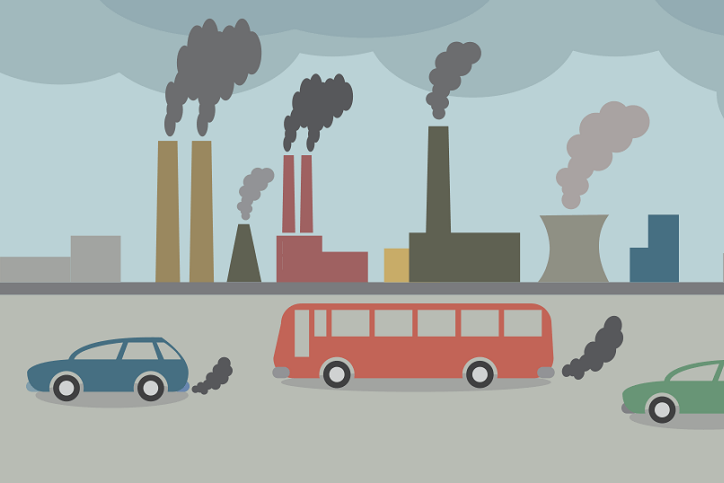
Air Pollution for Kids Air is all around us and we need it to survive.
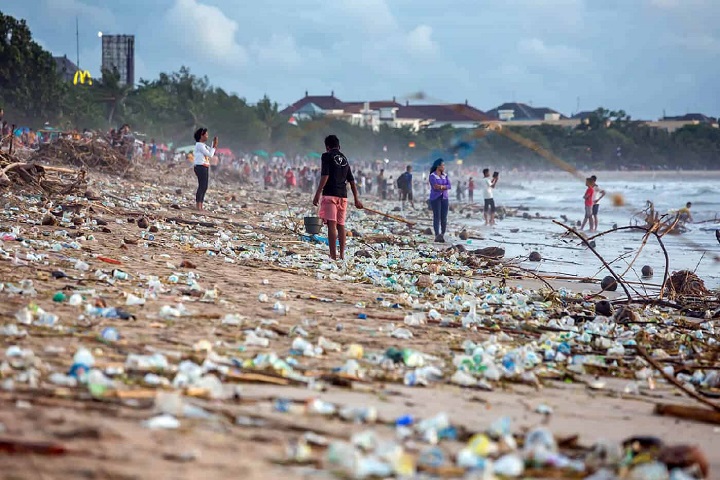
Why We Need to Stop Plastic Pollution? Our oceans are being filled and killed by throwaway plastics.
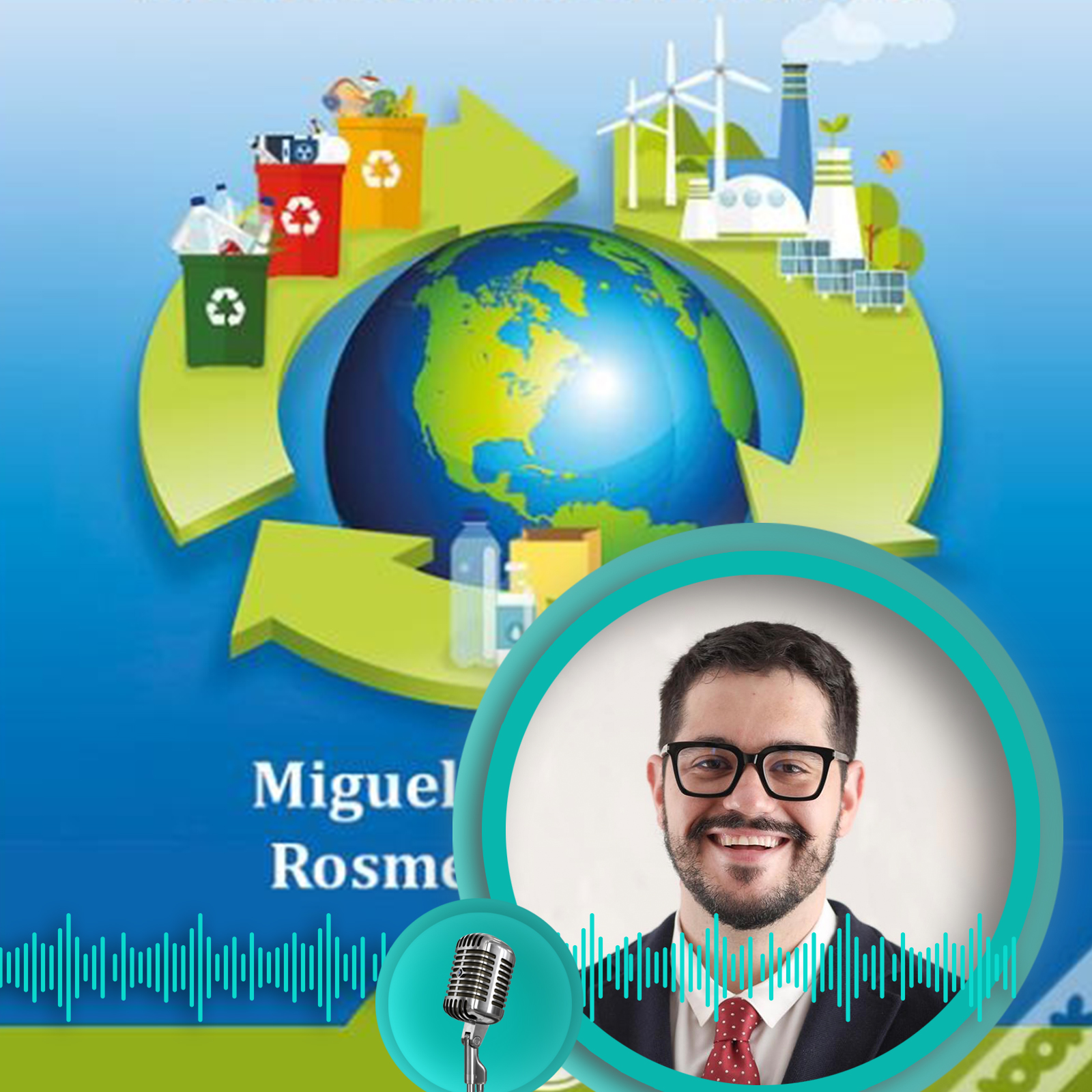
Climate Change, Ecological Crisis and Sustainability We are all agents for change in climate action.
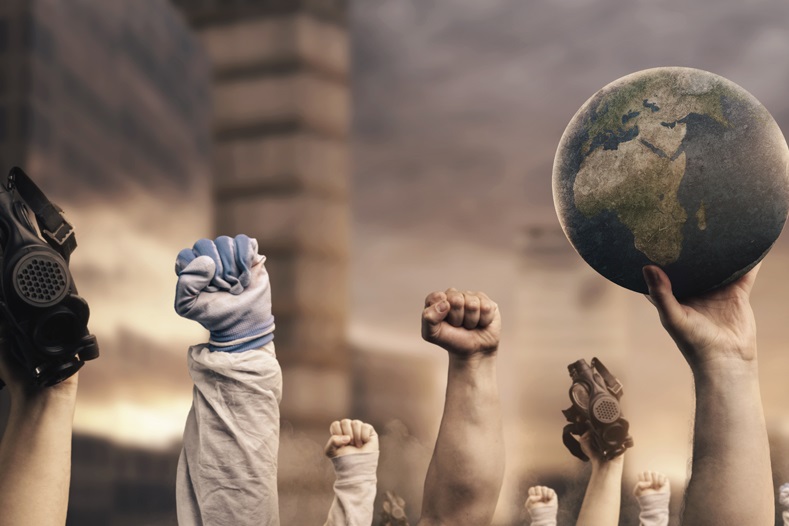
Climate Racism Climate Racism: Social Inequalities in the Age of Climate Change